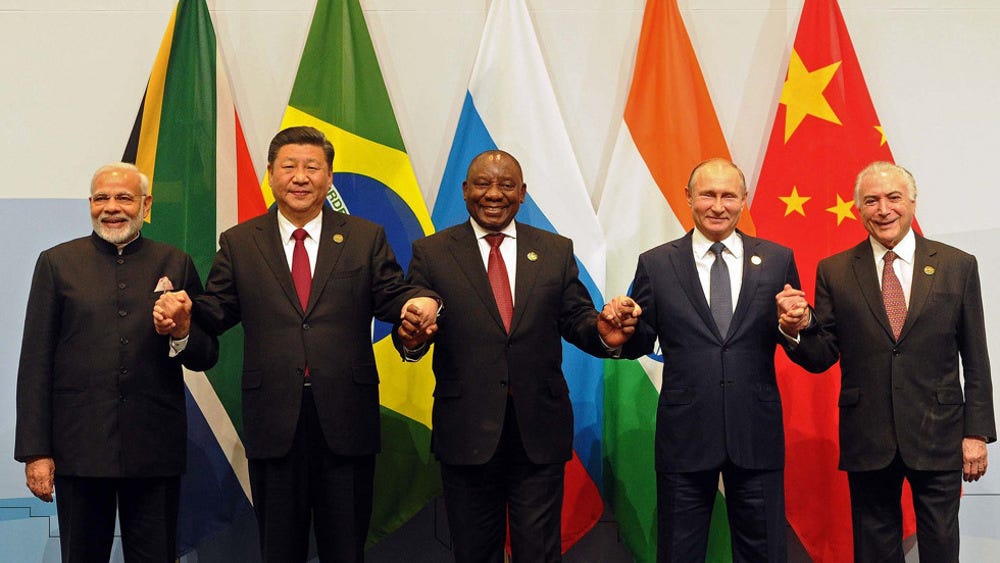SPECIAL: Alasdair MacLeod on Dollar Hegemon Death
The Dollar's Demise: Gold-Backed BRICS Currencies Spell Trouble
Housekeeping: Having read and reread Alasdair Macleod’s most recent piece on the dollar’s dilemma faced with potential competition from BRICS alternatives we wrote an analysis for your enjoyment. Subscribers can read the original 5300 word missive on Goldmoney or just underneath our summary-analysis.
The Dollar's Demise: Gold-Backed BRICS Currencies Spell Trouble
Contents:
Introduction
The Birth of a New Gold-Backed Trade Settlement Currency
Challenging Keynesian Misconceptions
The Dollar's Dire Situation
The BRICS Gold-Backed Trade Currency and the Dollar's Vulnerability
Triffin’s Dilemma
Triffin’s Crisis
Balance of Terror
The Bigger Threat to the Euro and Sterling
Gold: The Future Anchor
The End of the Fiat Currency Era
Conclusion
Introduction
In a recent Goldmoney Insight, Alasdair delved into the proposal for a new gold-backed trade settlement currency discussed at the BRICS summit. This latest missive by him examines the ramifications this could have on the current dollar-based fiat currency regime.
The Birth of a New Gold-Backed Trade Settlement Currency
Evidence suggests that the concept of a new trade settlement currency, backed by gold, has been carefully considered for some time, as far back as 2017 at least. The upcoming BRICS meeting in Johannesburg aims to take the initial step away from fiat to gold-backed currencies. Unlike welfare-dependent nations, the attendees can back their currencies with gold more easily, which aligns with their commercial interests.
Challenging Keynesian Misconceptions
According to Alasdair1, our statist establishments and market participants have been ideologically indoctrinated with Keynesian misconceptions and the state theory of money for so long that they fail to grasp the importance of sound money and the threat it poses to our economies.
A historical parallel can be drawn from John Law, whose proto-Keynesian policies led to France's bankruptcy in 1720. Understanding this history sheds light on our current dilemma and its potential consequences.





